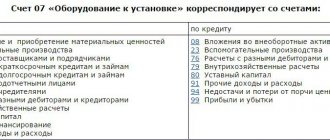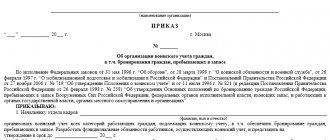2020-05-28 7001
Changes in accounting have been happening one after another lately. And this is not surprising - domestic accounting standards have long been in need of updating.
Changes in accounting have been happening one after another lately. And this is not surprising - domestic accounting standards have long been in need of updating. In the current situation, the most difficult thing is for accountants, who, in addition to their main responsibilities, now constantly have to understand new legislative acts and radically change their usual accounting methods. In this article we will figure out how not to get lost in this endless string of accounting innovations and what to prepare for in the coming years.
Federal Law “On Accounting”: what’s new
The Law “On Accounting” is a fundamental document that establishes uniform standards for accounting and reporting. Now accounting is regulated by 402-FZ, which came into force in 2013. During its short period of existence, several significant amendments have already been made to it.
Table of changes to the Federal Law “On Accounting”
| 2014 | The list of institutions entitled to “simplified” status has been clarified. |
| 2016 | The Academies of Sciences were deprived of their status as “public sector organizations.” |
| 2017 | Regulatory acts of the Central Bank of the Russian Federation were included in the list of documents regulating accounting. |
| 2018 | All current PBUs have been recognized as federal standards. |
In May 2020, the Ministry of Finance developed a new bill amending 402-FZ, which is still under consideration. The amendments provide:
- The requirement for an accountant to prepare a primary account will become mandatory for all employees.
- It is not necessary to have paper accounting records; an electronic one with a digital signature of authorized persons is sufficient.
- The Central Bank will have the right to issue acts that may contradict the Federal Law.
In addition to the Federal Law, accounting is regulated by other by-laws.
Transport tax declaration
Accountants should report transport tax for 2020 using a new form. It was approved by order of the Federal Tax Service of Russia dated December 5, 2016 N ММВ-7-21/668. The declaration consists of a title page and two sections. They indicate the amount of tax payable and the amount of tax for each car.
The changes mainly affected section 2 of the declaration. It now contains the lines:
— year of manufacture of the vehicle;
— tax deduction code;
- the amount of tax deduction.
In the new form, you can take into account a tax deduction, which reduces the tax by the amount of the payment made in the Platon system. When filling out the declaration, be guided by the control ratios. They are presented in the letter of the Federal Tax Service dated March 3, 2017 No. BS-4-21/ [email protected]
We remind you that the deadline for submitting the declaration is February 1, 2018.
Large-scale project of the Ministry of Finance: PBUs are being replaced by FSBUs
In 2020, the Ministry of Finance decided to replace the usual accounting standards and began developing federal accounting standards. The project continues to be implemented within the framework of the program for 2018-2020. At the moment, the accounting procedure for various accounting facilities is regulated by 24 accounting regulations.
The need for such a large-scale update of the accounting regulatory framework has been brewing for a long time. The new FSBUs will bring it closer to world standards and the modern level of economic development. As part of similar programs of the Ministry of Finance for 2016-2018 and 2017-2019, adjustments have already been made to some PBUs. Let's look at the most significant of them.
SZV-STAZH
In 2020, for the first time, accountants will have to send to the Pension Fund information about the insurance experience of employees using the new form SZV-STAZH. The reporting is annual and is submitted for 2017 in relation to each employee working under both an employment contract and a civil law contract. The reporting form is established by Resolution of the Pension Fund of the Russian Federation dated January 11, 2017 No. 3p.
It should be remembered that those organizations that employ less than 25 people can report to the Pension Fund on paper. If an organization has 25 or more employees, reporting must be submitted exclusively electronically. For failure to comply with the electronic form, a fine is established under Article 17 of Federal Law No. 27 dated April 1, 1996. The fine is 1000 rubles.
The Pension Fund began accepting SZV-STAZH in January, the deadline for submitting information is March 1, 2020. If you are late in submitting your reports or make mistakes in them, both the accountant and the organization will be fined. For an organization, the fine is 500 rubles for each employee for whom errors were made or information was not provided. The fine for accountants and management is provided for in Art. 15.33.2 Code of Administrative Offenses of the Russian Federation. It ranges from 300 to 500 rubles.
Innovations in PBU 1/2008 “Accounting policies of the organization”
In August 2020, amendments to PBU 1/2008 were introduced regarding the requirements for the formation of accounting policies of institutions. Changes occurred on the following points:
- organizations received the right to independently choose the method of organizing accounting;
- when developing management programs, priority must be given to IFRS standards;
- organizations received the right to be guided by the criterion of rationality when choosing accounting methods;
- organizations on the simplified tax system received the right to form a management system based on the criterion of rationality;
- determined the conditions under which an organization can deviate from PBU 1/2008;
- canceled the explanatory note on changes to the UP.
In general, the requirements for the formation of accounting policies have become less stringent. Therefore, many organizations were able to choose more convenient and rational methods of accounting.
Declaration on property tax of organizations
For 2020, the property declaration will need to be submitted to the Federal Tax Service using a new form. It was established by order of the Federal Tax Service dated March 31, 2017 No. ММВ-7-21/ [email protected] Tax authorities will no longer accept a declaration using the old form.
In the new declaration, the barcodes and reporting period codes have changed, the TIN has been shortened, and a new section 2.1 has appeared, “Information about real estate objects taxed at the average annual cost.”
The new section is filled out by legal entities for real estate specified in section 2 of the calculation and taxed at the average annual value.
The declaration must be submitted no later than March 30, 2020. To fill it out correctly, you need to focus on the control ratios. They were published in the letter of the Federal Tax Service dated May 25, 2017 No. BS-4-21/ [email protected]
Adjustments to PBU 3/2006 “Accounting for assets and liabilities in foreign currency”
Amendments to PBU 3/2006 were adopted in 2020, but will come into effect from the beginning of 2020. According to them:
- organizations outside the Russian Federation that include data from subsidiaries in their accounting records will also be guided by PBU 3/2006;
- if there is no official foreign exchange rate of the Central Bank of the Russian Federation, the value of the asset will need to be recalculated at the cross rate of this currency;
- organizations will be able to keep records of exchange rate differences in the manner prescribed by IFRS;
- General rules have been developed for the recalculation of assets and liabilities in foreign economic activity.
Want to test your knowledge of IFRS?
Take the free Do You Know IFRS quiz to assess your level of knowledge of IFRS and decide how deeply you should dive into courses on this topic.
IFRS tests
New in payment orders
The procedure for filling out payment orders in the new year will remain the same; changes affected budget classification codes. Officials added new BCCs:
- Income tax. A new BCC has been introduced for income received from bonds issued by Russian organizations during the period 01/01/2017–12/31/2021 (Order of the Ministry of Finance dated 06/09/2017 No. 87n).
- Excise taxes. New budget classification codes for electronic cigarettes, heating tobacco and nicotine-containing liquids have been added (Order of the Ministry of Finance dated 06/06/2017 No. 84n).
- Resort fee. New KBK for paying resort fees to the budget. Now the payment should be transferred using 000 1 1500 140 (“Fees for the use of resort infrastructure (resort fee)”), where the first three digits (zeros) are the revenue administrator. The administrator of the resort fee has not yet been determined.
New FSBUs planned for 2019–2022
The Ministry of Finance program for 2018-2020 involves the creation of 14 new FSBs and the introduction of amendments to existing PBUs. New standards will not be introduced all at once, but sequentially.
That is, as of January 1, 2020, the first standard of a new generation, “Inventories,” will come into force, which will replace the well-known PBU 5/01 “Inventory Accounting.” In accordance with it, literally everyone will have to:
- revise the methodology for calculating product costs;
- measure inventories at fair value in accordance with IFRS;
- learn to predict the consequences of purchasing inventory;
- include interest and other debt expenses into the cost price;
And this is not all that is new. It is better for accountants to start preparing in advance for all the upcoming changes, because their scale is such that accounting will have to change radically.
Insurance premiums ↑ up
Insurance premiums also did not remain unchanged. Some of them have been changed as follows:
- A new form for calculating insurance premiums for 2018 has appeared . An absolutely new form was not developed; the old form was simply slightly adjusted. Some lines from the second appendix and third section of the report were completely removed, and some new ones were added. an example of filling out the calculation of insurance premiums for 2018 in the article Procedure for filling out the calculation of insurance premiums.
In 2020, legislators did not abolish the need to submit a zero calculation for contributions. We provided an example of filling out a zero calculation in the article Sample of a zero calculation for insurance premiums (2018).
- Contributions from private businessmen no longer depend on the size of the minimum wage and tariff rate. Fixed contribution amounts are now used.
- A new maximum database size has appeared. A legal entity can accrue contributions as long as they do not exceed the maximum amounts. For pension contributions this value is 1,021,000 rubles, and for social contributions - 815,000 rubles.
- The benefits for legal entities operating in the IT field have been extended. Those companies that are engaged in the development, maintenance, and implementation of databases and computer programs are entitled to benefits. The contribution rate for them is 8% of the total 14%.
- The emergence of a new benefit - a larger number of results of intellectual activity are subject to pension and medical contributions if a citizen transfers them to a legal entity for a monetary reward.
“New life” of government institutions: new FSBU and accounting instructions
Since January 2020, government agencies have been the first to make the transition to the new Federal Accounting Standards. 5 standards were immediately put into effect:
- Conceptual Framework
- OS
- Impairment of assets
- Rent
- Presentation of accounting reports
These standards have introduced a lot of new things into budget accounting and reporting procedures, but the changes do not end there. As part of the project to develop new FSBUs, it is planned to introduce another 24 standards.
Important!
To bring budget accounting in line with the new standards, the Ministry of Finance made changes to other regulatory documents: KOSGU, accounting instructions, charts of accounts.
On May 8, 2020, updated instructions 157n and 147n came into force. They set out the procedure for creating accounting accounts and recommendations for preparing records for government agencies.
New form 2-NDFL approved
Based on the order of the Tax Service dated January 17, 2018 No. ММВ-7-11/19, the certificate of income of individuals in form 2-NDFL was updated . It begins to operate with the submission of information on the income of individuals for the tax period 2017 .
What changed?
Now the legal successor , regardless of the type of reorganization (liquidation), if the reorganized company has not done this, is obliged to submit for it to the Federal Tax Service at the place of its registration forms 2-NDFL and 6-NDFL , as well as updated information. If there are several legal successors, then the obligation of each of them will need to be determined based on the transfer deed or separation balance sheet (based on the new paragraph 5 of Article 230 of the Tax Code of the Russian Federation).
To do this, in section 1 “Data about the tax agent” of the certificate, a new field “ Form of reorganization (liquidation) ” has appeared, in which the corresponding code (from 0 to 6) , as well as the field “ TIN/KPP of the reorganized organization ”. The legal successor of the tax agent must indicate: OKTMO code at the location of the reorganized organization or its separate division, and in the “Tax Agent” field - the name of the reorganized organization or its separate division.
From Section 2 “Data about the individual recipient of income”, fields with the address of the taxpayer’s place of residence .
Section 4 excludes investment deductions from tax deductions.
The list of income and deduction codes for personal income tax has been expanded
Since 2020, according to the order of the Federal Tax Service dated October 24, 2017 No. ММВ-7-11/820, new codes of income and taxpayer deductions have appeared that need to be recorded in 2-NDFL certificates, namely:
| Revenue code | Decoding |
| 2013 | Amount of compensation for unused vacation |
| 2014 | The amount of payment in the form of severance pay, average monthly earnings for the period of employment, compensation to the manager, deputy managers and chief accountant of the organization in the part that generally exceeds three times the average monthly salary or six times the average monthly salary for dismissed workers from organizations in the Far North and similar areas |
| 2301 | Amounts of fines and penalties paid by an organization on the basis of a court decision for failure to comply with consumer requirements in accordance with the Law of the Russian Federation of February 7, 1992 No. 2300-1 “On the Protection of Consumer Rights” |
| 2611 | The amount of bad debt written off from the organization’s balance sheet |
| 3023 | The amount of income in the form of interest (coupon) on circulating bonds of Russian organizations denominated in rubles |
Also, starting from 2020, a new deduction code :
| 619 | The amount of positive financial results obtained from transactions recorded on an individual investment account |
A new form of calculation 6-NDFL has been approved
Based on the order of the Federal Tax Service of Russia dated January 17, 2018 No. ММВ-7-11/ [email protected], were made to the 6-NDFL calculation form and the procedure for filling it out.
What changed?
The following lines have been added to the title page :
- form of reorganization (liquidation) code
- TIN/KPP of the reorganized organization
These lines must be filled out by successor organizations when filing 6-NDFL for the reorganized company, if it did not have time to do this before the completion of the reorganization. If an organization is liquidated only have to fill out “ Form of reorganization (liquidation) code ”, putting the code “0” in it. In the line “TIN/KPP of the reorganized organization,” the liquidated organization must put dashes (Letter of the Federal Tax Service dated 01.02.2018 No. GD-4-11/1804). The new form begins to apply with the submission of calculations for 2020 . Taxpayers have the right to submit 6-NDFL for 2020 using both the old and new forms.
The procedure for paying personal income tax on winnings has changed
Based on Federal Law No. 354-FZ of November 27, 2017, from January 1, 2020, the procedure for calculating and paying personal income tax on income in the form of winnings received by gambling participants has changed:
- if the winning amount does not exceed 4,000 rubles , it is not subject to personal income tax
- Individuals will have to independently pay personal income tax on winnings in the amount of over 4,000 rubles to 15,000 rubles .
- if the winnings are equal to or exceed 15,000 rubles , the tax amount will have to be calculated by the tax agent .
A new form of book for accounting income and expenses under the simplified tax system has been introduced
From January 1, 2020, the form of the book of income and expenses accounting under the simplified taxation system has changed.
What changed?
- A new section V has appeared , which fixes trade tax deductions , due to which the single tax is reduced where it is valid
- The book does not need to be certified by a seal if the company has decided to refuse to use it
- In Column 4 “Income” of Section I there is no need to indicate the profit of controlled foreign companies
- Individual entrepreneurs on the simplified tax system can indicate all their deductions for insurance premiums : both for incomes up to 300,000 rubles , and 1 percent above the specified amount.
Increased income limits for calculating insurance premiums
Based on Decree of the Government of the Russian Federation dated November 15, 2017 No. 1378, the base for calculating insurance contributions to the Social Insurance Fund ( in case of temporary disability and in connection with maternity ) in 2020 is 815,000 rubles , and for calculating contributions to the Pension Fund at the usual rate - 1,021,000 rubles .
Insurance premium rates in 2020
| Recipients | Limit amount of base for accrual | Current rate |
| Pension Fund | 1,021,000 inclusive | 22% |
| Pension Fund | More than 1,021,000 | 10% |
| Compulsory Medical Insurance Fund | No maximum size | 5,1% |
| FSS | 815,000 inclusive | 2,9% |
| FSS | More than 815,000 | 0% |
Insurance premium rates will remain until 2020 inclusive
The general insurance premium rate in 2020 is still 30% :
- 22% – for pension insurance;
- 5.1% – for health insurance;
- 2.9% - for social insurance.
The amount of contributions to be paid depends on whether the income has exceeded the established limit of the base for accrual or not. Based on Federal Laws No. 361-FZ of November 27, 2017 and No. 428-FZ of December 28, 2017, the 30% rate will be valid until 2020 inclusive (Articles 425, 426 of the Tax Code of the Russian Federation).
The amounts of fixed insurance premiums for individual entrepreneurs have been changed
Based on Federal Law No. 335-FZ of November 27, 2017, a new procedure for calculating fixed insurance premiums for individual entrepreneurs “for themselves” was introduced in 2018. They no longer depend on the minimum wage .
Amounts of fixed insurance premiums for individual entrepreneurs up to 2020 inclusive:
| Recipient | 2018 | 2019 | 2020 |
| Pension Fund with income less than 300 thousand rubles | 26 545 | 29 354 | 32 448 |
| Pension Fund with an income of more than 300 thousand rubles | 26,545 + 1% on amounts over 300 thousand. | 29 354 + 1 % from an amount over 300 thousand. | 32 448 + 1 % from an amount over 300 thousand. |
| Compulsory Medical Insurance Fund | 5 840 | 6 884 | 8 426 |
The deadline for paying insurance premiums for incomes over 300,000 for individual entrepreneurs has changed
Based on Federal Law No. 335-FZ of November 27, 2017, fixed insurance premiums for individual entrepreneurs “for themselves” from income exceeding 300,000 rubles has changed . Now entrepreneurs are required to transfer the above insurance premiums no later than July 1 of the next year . For example, for 2020 they must be listed no later than July 1, 2020 . And since July 1 in 2018 is a Sunday, fees can be paid no later than July 2, 2020 .
There are more reasons not to accept RSV
Based on Federal Law No. 335-FZ of November 27, 2017, starting from 2018, insurance premium payments may not be accepted for the following reasons :
- errors in the amount of payments and other rewards
- errors in the database for calculating pension contributions within the limit
- errors in the database for calculating pension contributions according to additional tariffs
- errors in the amount of pension contributions themselves
- false personal data
The amounts of the same indicators for all individuals must match the same indicators for the payer as a whole.
Insurance premium rates for injuries have not changed
In 2020, the same 32 basic injury insurance premium that were in effect in 2020 will apply. Their rate increases from 0.2 to 8.5 percent of the amount of payments in favor of the insured persons, depending on the degree of professional risk. Also in 2020, benefits for the payment of insurance premiums will remain for individual entrepreneurs who employ disabled people .
Until 2020 inclusive, benefits will remain for individual entrepreneurs paying contributions for disabled people of groups I, II and III - 60% of the established insurance rates.
For the first time you need to submit the annual SZV-experience form
Before March 1, 2020, for the first time it is necessary to submit to the Pension Fund the annual form (based on the results of 2020) SZV-STAZH - a report on the pension experience of employees. Based on clause 1.5 of the Procedure, approved by Resolution of the Board of the Pension Fund of the Russian Federation dated January 11, 2020 No. 3p, it must be submitted by organizations and entrepreneurs paying remuneration to individuals:
- under employment contracts;
- under civil contracts for the performance of work or provision of services;
- under copyright contracts and licensing agreements.
From June 1, 2020, a service for checking counterparties will be launched on the Federal Tax Service website
The Federal Tax Service's service for checking counterparties "Transparent Business" was supposed to start operating on July 25, 2020. But on the basis of clause 7 of the Order of the Federal Tax Service of Russia dated December 29, 2016 No. ММВ-7-14/729, its launch was postponed to June 1, 2020 . From this date on the Federal Tax Service website you will be able to find the following information about counterparties:
- about arrears and debts on penalties and fines;
- about tax offenses and penalties for them;
- about special tax regimes;
- on participation in a consolidated group of taxpayers;
- on the average number of employees, taxes and fees paid
- on the amounts of income and expenses according to financial statements.
The data that will appear on the Internet on June 1, 2020 will include information on tax offenses, decisions on which came into force in the period from June 2, 2020 to December 31, 2020, and fines unpaid before May 1, 2020. Only information about legal entities will be available; information about individual entrepreneurs will not be publicly available.
The FSS pilot project will not be expanded
Based on the Decree of the Government of the Russian Federation No. 1514 dated December 11, 2017, the validity period of the FSS pilot project “Direct Payments” was extended until 2020 inclusive . In regions where it operates, employers pay disability benefits only for the first three days of illness. The remaining part of the sick leave, as well as other benefits to employees, is transferred directly by the territorial bodies of the Social Insurance Fund . will not expand as planned for now - new regions will not be included in it. Direct payments of benefits from the Social Insurance Fund remain in 33 regions of Russia , and in the rest the credit scheme continues to operate.
The special assessment of working conditions must be completed before the end of 2018
Based on Part 6 of Article 27 of Federal Law No. 426-FZ of December 28, 2013 “On Special Assessment of Working Conditions,” all employers must conduct a special assessment of working conditions in workplaces with hazardous and harmful production factors . At all other workplaces, including office ones, it is allowed to carry out a special assessment in stages, the last stage must be completed no later than December 31, 2020 .
From January 1, 2020, the minimum wage has been increased
Based on Federal Law No. 421-FZ of December 28, 2017, from January 1, 2020, the minimum wage was increased to 9,489 rubles . This federal law establishes that, starting from January 1, 2019 and thereafter annually from January 1 of the corresponding year, the minimum wage will be equal to the size of the subsistence level of the working-age population as a whole in the Russian Federation for the second quarter of the previous year. Thus, from 2020, a mechanism for bringing the minimum wage to the subsistence level begins to operate. Later, it was decided that the minimum wage in Russia will be equal to the subsistence level from May 1, 2020 and will be 11,163 rubles .
The calculation of many payments depends on the minimum wage, including temporary disability benefits, maternity benefits, child care benefits up to 1.5 years, as well as other payments, the amount of which is tied to the minimum wage.
From February 1, 2020, child benefits were indexed
Based on Decree of the Government of the Russian Federation No. 74 of January 26, 2018 “On approval of the amount of indexation of payments, benefits and compensation in 2020,” benefits by a factor of 1.025 from February 1, 2020 Payments are increased by the price growth index for the previous year (Federal Law dated December 19, 2016 No. 444-FZ). As a result, benefits in 2018 will increase by 3.2 percent.
| Benefit | Size before February 1, 2018 | Size from February 1, 2018 |
| One-time benefit for the birth of a child | 16 350,33 | 16 759, 09 |
| Minimum monthly allowance for caring for the first child | 3065.69 (including the minimum wage - 3120) | 3795,60 |
| Minimum monthly allowance for caring for the second and subsequent children | 6131,37 | 6284,65 |
| One-time benefit for registration in the early stages of pregnancy | 613,14 | 628, 47 |
Accounting policies for accounting purposes: are adjustments needed?
In connection with the entry into force of the new Federal Accounting Standards and the introduction of adjustments to PBU 1/2008, the accounting policy for 2020 needs a thorough revision. A lot of changes will have to be made, so it’s better to start working on it as early as possible.
Important!
The absence or irrelevance of an order on the UE is a serious reason for a fine.
In the updated UE for accounting purposes for 2020, do not forget:
- use the right to independently choose the most rational accounting methods;
- when developing your own accounting methods, rely primarily on the principles of IFRS;
- consolidate new methods of accounting for inventories, their evaluation and determination of cost in accordance with the new Federal Accounting Standards “Inventories”.
Please review the sample accounting policies for 2020 to understand which items need revision.
A delay has been introduced for the transition to online cash registers until July 1, 2020
Based on Federal Law No. 337-FZ of November 27, 2017, until July 1, 2020, the following categories of taxpayers received a deferment for the use of online cash register systems :
- companies on UTII (except retail and catering);
- individual entrepreneurs with a patent (except for retail and catering);
- organizations and individual entrepreneurs on UTII and patent in the field of retail and catering that do not have employees;
- individual entrepreneurs selling through vending machines and not having employees;
- individual entrepreneurs providing services and issuing strict reporting forms (except for catering with hired employees)
Don't forget to tell your friends








